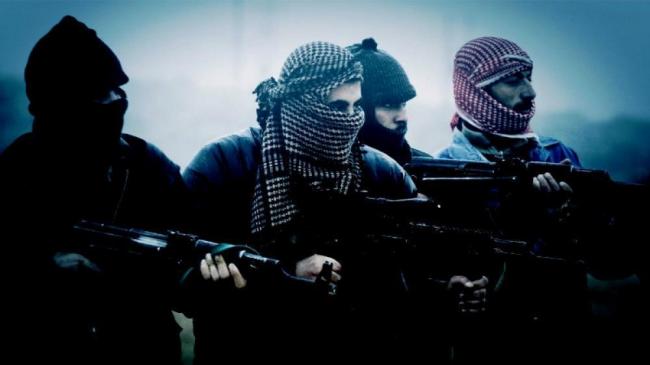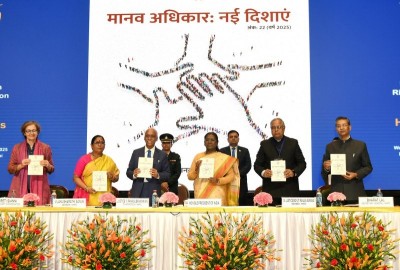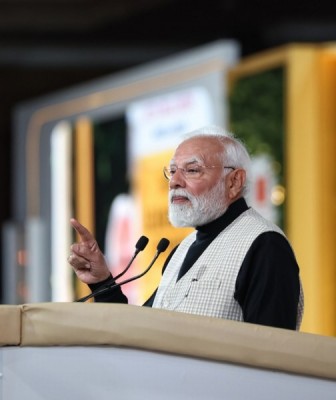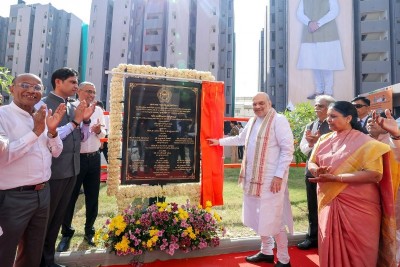
Tribal Elders: The Curse of War
On July 31, 2018, two tribal elders, Malik Salam Khan and Malik Niaz Khan, were shot dead in an incident of targeted killing in Miramshah town, North Waziristan District, in Khyber Pakhtunkhwa (KP) [the Federally Administered Tribal Areas (FATA) merged with KP on May 31, 2018]. Family sources said that Malik Salam Khan and Malik Niaz Khan were going from Tappi village to Miramshah when unidentified assailants targeted their vehicle.
On February 15, 2018, two tribal elders, Malik Shah Khan and Malik Askar Shah, were killed and two others were injured in a landmine blast in the Tor Simat area of Orakzai Agency in (then) FATA. Malik Shah Khan and Malik Askar Shah were travelling with two other tribal elders to Hangu (KP) when their vehicle hit a roadside landmine in the Tor Simat area.
On February 8, 2018, a tribal elder, Malik Farooq Khan, was killed in a remote-controlled explosion in the Hialal Khail area of Bajaur Agency in FATA. Malik Farooq Khan was going to a nearby market in the mountainous Hialal Khail area of Charmang Valley when an explosive device placed along the road went off.
There has been a spike in such incidents and resultant fatalities in the current year (2018) after a noticeable decline observed in 2016 and 2017, in comparison to previous years. According to partial data compiled by the South Asia Terrorism Portal (SATP), during the first seven months and three days of the current year (2018), there have been three such incidents (targeting tribal leaders) resulting in the death of five tribal leaders across Pakistan’s tribal areas. During the corresponding period of 2017, one tribal elder had died in one incident; and in the remaining period of 2017, there was one more incident resulting in one death. Through 2016, there were two such deaths in two incidents. The tribal areas recorded 11 such incidents, resulting in 14 killings through 2015.
SATP’s partial data, based on erratic reporting in the Pakistani media, confirms the killing of at least 163 tribal elders since 2005 in 110 incidents. The first such incident in the SATP record took place on May 29, 2005, when former Federal Minister and Senator, Malik Faridullah Khan Wazir, was assassinated along with two other tribal elders reportedly by four al Qaeda-affiliated terrorists in the Jandola area of South Waziristan Agency in FATA.
SAIR noted earlier that, since the beginning of the US-led operation in Afghanistan in 2001 and the consequent influx of Afghan Taliban into Pakistan’s tribal areas, primarily FATA, tribal elders became frequent victims of a sustained campaign of annihilation that has virtually destroyed the structure of traditional tribal power in these regions. In the compound of the FATA Secretariat, there stands a lonely cenotaph with, “Elders/Maliks of Federally Administered Tribal Areas Martyred in Militancy” inscribed on it. It bears as many as 111 names. Although the font used for the writing has remained consistent, additional slabs of marble have been added to accommodate more names in this expanding list.
Delawar Khan Wazir, a senior journalist from South Waziristan Agency, who maintained a record of his own since 2001, claimed on September 5, 2015, that 1,114 tribal elders had been killed till that point by the Taliban, al Qaeda and their affiliates, in the seven agencies and six frontier regions of erstwhile FATA.
The attacks on tribal elders and their families demonstrate the abject failure, irresponsibility and inconsistency of state policies that have worsened the vulnerabilities of this endangered leadership in FATA and KP. The attacks mainly target tribal elders who support Government operations against the terrorists and are often acts of vengeance by terrorists who have been forced to flee the areas due to successive military offensives. Brigadier (Retd.) Mehmood Shah, former FATA Security Secretary, had stated on May 11, 2017, that the Taliban began targeting tribal elders in 2005 after the elders voiced their support for the Government, Army and intelligence agencies. He observed,
At the end of 2004, the tribal elders signed agreements with the political administration, [allowing] for the arrest of Taliban members in tribal areas. The agreements aimed to discourage the Taliban's presence and power in the region, which previously the tribal community tolerated. That enraged the militants and they started killing elders.
Not surprisingly, during the peak of militancy between 2008 and 2015, at least 127 tribal elders’ heads rolled in the war against terrorism in tribal areas, accounting for 78 per cent of the total of 163 killings of tribal elders recorded by SATP. Many locals fled the troubled region as a result. The Army in the meantime lunched major counter-insurgency operations – Zarb-e-Azb (Sword of the Prophet) on June 15, 2014, and Radd-ul-Fasaad (Elimination of Discord) on February 22, 2017 – directed against domestically oriented terror groups. These operations forced these terrorist formations to escape the region and take shelter in areas across the border, inside Afghanistan. It helped authorities restore comparative peace in Pakistan’s tribal belt, and also had an impact on the terrorists’ capacities to target tribal society and to assassinate tribal elders. Consequently, in 2016 and 2017, only two tribal elders were killed in each year, as against 14 such killings during 2015.
According to the UN Office for the Coordination of Humanitarian Affairs (UNOCHA) report of January 18, 2018, between 2008 and 2014, more than five million people were displaced from FATA due to the security operations by the military against non-state armed groups. In mid-2015, because of the improved security situation and a more conducive environment for their return, the Government of Pakistan initiated a rehabilitation process for internally displaced persons (IDPs) in different FATA agencies based, on the denotification notices issued by the FATA Secretariat. Since then the Government, with the help of humanitarian partners, has facilitated 438,657 (93%) of the displaced families to return to FATA. There remains a total of some 29,000 families who are yet to return in 2018. The tribal areas have been wrecked by the war. The FATA Disaster Management Authority (FDMA) on October 3, 2017, disclosed that approximately 80,000 houses were either fully or partially damaged due to militancy in the five agencies of the Federally Administered Tribal Areas.
Meanwhile, tribesmen from different parts of North Waziristan staged a protest demonstration at Mirali town on May 14, 2018, against increasing violence in the area, especially targeted killings. Tribal elder Malik Ghulam Dawar observed that tribesmen were facing severe unrest due to regular targeted killing incidents. He added that they had abandoned their homes and became IDPs for the return of peace, but now upon repatriation, they are once again facing violence. He added that such incidents confirm the presence of anti-social elements in the area and the Government needs to fulfill its responsibilities.
Despite unqualified support and immense help from the tribal elders and communities in the war against terrorism, Islamabad has demonstrated little concern for the safety and development of the tribal regions. The populations of KP (including erstwhile FATA) continue to suffer under sweeping and indiscriminate military operations, largely executed through haphazard bombings and artillery attacks on populated areas, which has brought ruination to the entire region and its populations.
Support Our Journalism
We cannot do without you.. your contribution supports unbiased journalism
IBNS is not driven by any ism- not wokeism, not racism, not skewed secularism, not hyper right-wing or left liberal ideals, nor by any hardline religious beliefs or hyper nationalism. We want to serve you good old objective news, as they are. We do not judge or preach. We let people decide for themselves. We only try to present factual and well-sourced news.







